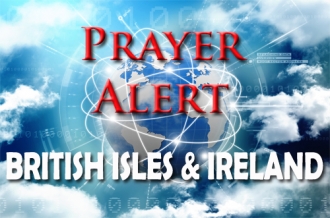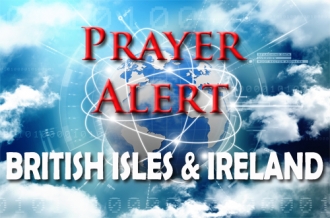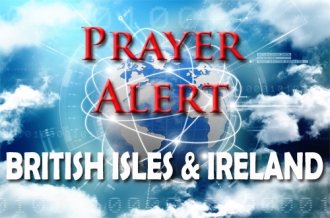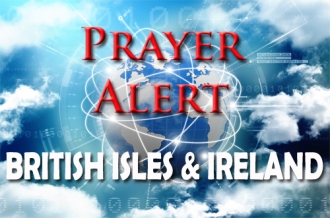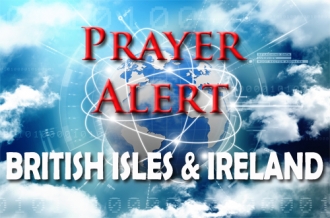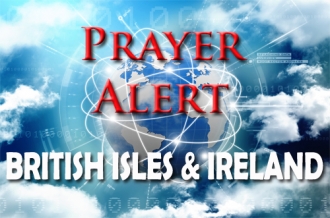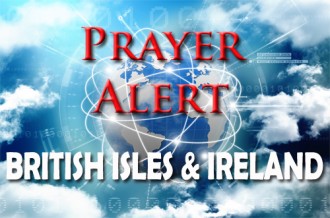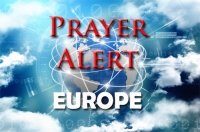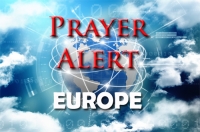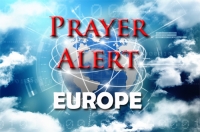Vincent Nichols: we will rise and host refugees
On Tuesday Cardinal Vincent Nichols, Archbishop of Westminster, called on UK Catholics to respond ‘in prayer and in real practical action’ to the call to house the 20,000 refugees coming to Britain. This follows Pope Francis' call on Sunday to the Catholic Church: ‘May every parish, every religious community, every monastery, every sanctuary in Europe host a family - starting with my diocese of Rome.’ The Vatican will house two Syrian families. Nichols said the Church will work to ‘ensure the effective reception and long-term resettlement of these desperate people.’ Nichols said that the Church would work with the government and other authorities in its response. Specific details about how the parishes will carry out the hosting programme will be released in the future.
Rights group brings legal action against UK government
After two British citizens who fought for IS were deliberately killed in an RAF targeted drone strike in Syria a human rights group, Rights Watch (UK), said it will issue judicial review proceedings in the High Court unless the government publishes the legal advice it received from the Attorney General to justify the drone strikes. They believe there is insufficient information to know whether the drone strikes were done lawfully and said, ‘These strikes set a dangerous precedent for UK government activity. The UK government can now kill at will with no oversight.’ Defence Secretary Michael Fallon said the government would take similar action again against other terrorists involved in other plots. Some are saying Cameron's drone strike in Syria means that the death penalty has returned to Britain, while Mr Cameron says it was an act of self-defence as the terrorists were known to be planning attacks in the UK.
Former Archbishop of Canterbury says UK must rescue Syria’s Christians
Reverend Dr George Carey believes that Germany opening its doors to the influx of refugees could turn Europe into a more attractive magnet for economic migrants, mostly young men travelling alone. ‘We don’t even know how many were combatants in the civil war’. He added, ‘If what I say sounds harsh, let me make it clear that I welcome David Cameron’s announcement to allow thousands more to enter Britain through refugee camps in Syria’s neighbouring countries. But the frustration for those of us who are calling for compassion for Syrian victims is that the Christian community is yet again left at the bottom of the heap. Christians are the most vulnerable and repeatedly targeted sufferers of this conflict. Britain should make Syrian Christians a priority. We are a Christian nation with an established Church, so Syrian Christians will find no challenge to integration. The churches are already well-prepared and eager to offer support and accommodation to those escaping the conflict.’
5,500 sex attacks in schools in three years
More than 5,500 alleged sex crimes in UK schools were reported to police from 2012 to 2015. A UK-wide investigation by BBC Radio 5 Live into sex crimes in schools discovered that in Great Britain there were nearly 4,000 alleged physical sexual assaults and more than 600 rapes in schools. In Northern Ireland the category of sex assaults was not released. The investigation also found that in England sixty pupils were permanently excluded for sexual misconduct in 2013/14, while there were no exclusions in Scotland or Wales. Focus on the Family reported recently, ‘The average age of exposure to pornography is eight. Today's child lives in a culture where hard-core pornography abounds. Our children are being seduced daily, and we need to bear this fact in mind whenever we have the occasion to redirect them away from pornography.’ See also http://www.focusonthefamily.com/parenting/sexuality/when-children-use-pornography/when-children-view-pornography
Praying for our education system
A September Department of Education press release said, ‘Millions of pupils returning to the classroom this term are being taught a new forward-thinking, knowledge-rich national curriculum that will give them the knowledge and skills to succeed in modern Britain.’ The new curriculum is designed to raise standards for children aged 5 to 16, especially the poorest, and hopes to provide a broad and balanced education ensuring that all pupils gain core knowledge across a range of key subjects for a better start in life. The curriculum is less prescriptive, allowing teachers to concentrate on what they do best - teach.
Queen Elizabeth II now the longest-reigning UK monarch
Queen Elizabeth II became Queen of England in 1952 and holds the title of Supreme Governor of the Church of England plus a symbolically authoritative position in the Church of Scotland. Her duties are to appoint archbishops, bishops and deans of cathedrals. This seems to make her an Anglican; however, she also holds honorary membership of the Presbyterian Church of Scotland. The Queen expresses a deep commitment to the principles of Christianity and during her millennium Christmas address said, ‘To many of us, our beliefs are of fundamental importance. For me the teachings of Christ and my own personal accountability before God provide a framework in which I try to lead my life. I, like so many of you, have drawn great comfort in difficult times from Christ’s words and example.’
Assisted dying: Archbishop urges MPs to reject bill
The UK will cross a ‘legal and ethical Rubicon’ if the law on assisted suicide in England and Wales is changed, the Archbishop of Canterbury has said. MPs will debate the Assisted Dying Private Members' Bill on Friday 11 September; it proposes to allow doctors to help terminally ill patients to die in some circumstances. Justin Welby said the bill would mean that suicide was ‘actively supported’ instead of being viewed as a tragedy. He and the heads of other Christian, Jewish, Muslim and Sikh groups believe the bill goes beyond merely legitimising suicide to actively supporting it and they have issued a joint letter urging MPs to reject it. The Archbishop said that asking doctors to aid suicide would be a change of monumental proportions both in the law and in the role of doctors. ‘This respect for the lives of others goes to the heart of both our criminal and human rights laws and ought not to be abandoned,’ the archbishop said.
Berlin: Asylum seekers converting to Christianity
Hundreds of Muslim refugees are converting to Christianity in a Berlin church. Pastor Gottfried Martens has seen his congregation at the evangelical Trinity Church grow from 150 to more than 600 in just two years, describing the number of conversions as a 'miracle.' One of these converts is Mohammed Ali Zonoobi, a carpenter from Shiraz, Iran, who was recently baptised. For Zonoobi and his wife Afsaneh their baptism marks a new beginning. Zonoobi is one of hundreds of mostly Iranian and Afghan asylum seekers who have been baptised at Trinity Church. However, there are concerns that some are not genuine converts, rather professing a Christian faith to boost their chances of staying in the country. Martens acknowledges this possibility, but says that, once in church, most people do engage and that around 90% of converts continue attending after they have been baptised.
Europe’s migrant crisis
Europe is facing the world’s biggest refugee crisis since the second world war and it is being propelled by wars and persecution. Last autumn the EU suspended full-scale maritime rescue operations in the Mediterranean, believing that their presence was encouraging more migrants to risk the sea journey from Libya to Europe. However, people kept on coming (4% increase during the paused rescue missions). Millions of people are travelling to escape violence, poverty and conflict in their homeland. Their journeys have caused thousands of deaths. The European Commission has called for EU states to take in 40,000 migrants expected to arrive in Italy and Greece over the next two years. On Wednesday EU Commission President Jean-Claude Juncker proposed that 120,000 additional asylum seekers should be distributed among EU nations, with binding quotas. Several nations are anxious and undecided about resettling programmes for nationals seeking asylum and in need of international protection. See: http://www.bbc.co.uk/news/world-europe-34193568
Greece faces emergency
Images of a small boy washed up on a Turkish shore flashed around the globe as a tragic representation of the current Mediterranean migrant crisis in which Greece is at the epicentre, with over 230,000 migrants surviving the treacherous journey to its shores in 2015. But Greece’s emergency goes far beyond this influx of migrants. Greece is racked with impossible debts, with no easy solutions. A legislative election will be held on Sunday 20 September, after which major decisions will need to be made. Greece stands at a crucial moment in its history. However, the greatest threat to Greece is not economic, political, or social. It is spiritual. Even though the evangelisation of Europe started here, less than 0.5% of Greeks are evangelical today. The Orthodox Church, though large, is often devoid of true life and faith. Greece stands today at the edge of a dangerous precipice.

